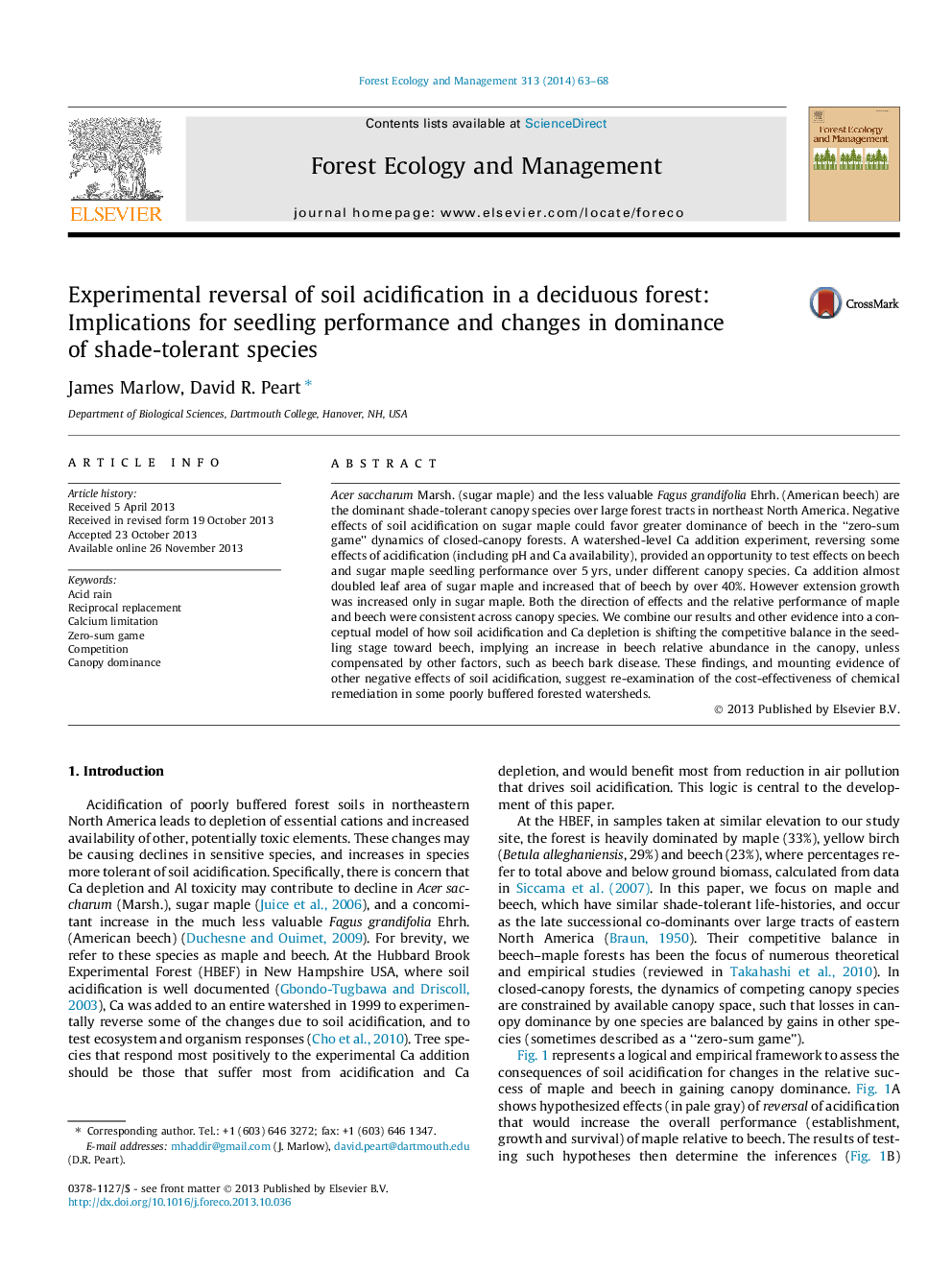| Article ID | Journal | Published Year | Pages | File Type |
|---|---|---|---|---|
| 86580 | Forest Ecology and Management | 2014 | 6 Pages |
•Experimental reversal of soil acidification changes seedling performance.•Anthropogenic soil acidification changes species dominance in northern hardwoods.•Fagus grandifolia is predicted to increase in dominance relative to Acer saccharum.•Chemical remediation may be warranted to maintain economic value.
Acer saccharum Marsh. (sugar maple) and the less valuable Fagus grandifolia Ehrh. (American beech) are the dominant shade-tolerant canopy species over large forest tracts in northeast North America. Negative effects of soil acidification on sugar maple could favor greater dominance of beech in the “zero-sum game” dynamics of closed-canopy forests. A watershed-level Ca addition experiment, reversing some effects of acidification (including pH and Ca availability), provided an opportunity to test effects on beech and sugar maple seedling performance over 5 yrs, under different canopy species. Ca addition almost doubled leaf area of sugar maple and increased that of beech by over 40%. However extension growth was increased only in sugar maple. Both the direction of effects and the relative performance of maple and beech were consistent across canopy species. We combine our results and other evidence into a conceptual model of how soil acidification and Ca depletion is shifting the competitive balance in the seedling stage toward beech, implying an increase in beech relative abundance in the canopy, unless compensated by other factors, such as beech bark disease. These findings, and mounting evidence of other negative effects of soil acidification, suggest re-examination of the cost-effectiveness of chemical remediation in some poorly buffered forested watersheds.
